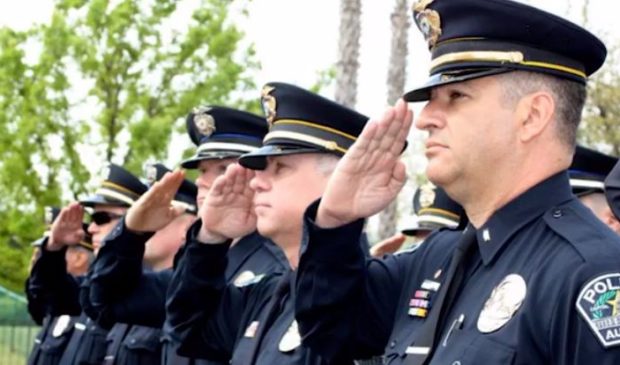Council reinstates some extra police pay
Friday, February 16, 2018 by
Jo Clifton With only City Council Member Greg Casar dissenting, Council voted Thursday to reinstate some incentive pay for Austin police officers to the level that they received under their old contract. That contract expired at the end of December, after Council rejected a new contract worked out by its negotiating team and negotiators for the Austin Police Association.
Activists in the audience, many of whom had urged Council to reject the contract worked out with the APA in December, argued against reinstating the special pay before new negotiations have even begun.
Chas Moore of the Austin Justice Coalition was one of the organizers who brought people to the Dec. 13 meeting to urge Council to reject the contract that the union had approved. Moore argued at the time that Austin had “the worst contract in the state right along with San Antonio in all areas,” and would be no worse off operating under state law.
On Thursday, Moore said that Council should not reinstate any of the incentive pay that officers had under the previous contract. “I think in negotiations that doesn’t make sense. … If I say you need to come back to the table and you leave, why am I giving you something to come back?” The APA declined to negotiate further in December, saying it wanted to wait until Austin had its new city manager, Spencer Cronk, on board. Cronk officially started his job this week.
From the activists’ point of view, the police are being rewarded even though there is now no civilian oversight from the Citizen Review Panel. State law does not provide for oversight outside the Police Department, and the only way to reach an agreement on that is to negotiate with the union. Even though activists have suggested that the city auditor or a nonprofit could do the job, that seems unlikely.
Interim Police Chief Brian Manley told the Austin Monitor exactly what Council approved during its lengthy discussion of incentive pay. “Many of the ‘soft pay’ items that officers had under the meet-and-confer contract have now been reinstated up through some time period in May,” he said. He is hopeful that the city and the police union can work out an interim agreement by then, he said.
“The stipends that were put back in place today are the education and certification stipends for officers based on either their level of professional certification or their level of higher education. They received back their mental health stipend to the rate that it had been in the meet-and-confer agreement,” he said.
Manley explained that in order to receive the mental health stipend, an officer must undergo advanced mental health training and become part of a crisis intervention team. Officers who qualify for this stipend will receive an additional $175 a month, just as they did under the old contract. State law does not offer additional money for crisis team members, he said.
Under Council’s action, bilingual officers will receive $175 extra per month, Manley said, compared to just $75 extra per month under state law. Officers who work nights and weekends lost $300 per month when the contract ended and their employment was simply governed by state law. With the action it took on Thursday, Council has reinstated the extra $300 per month that officers receive for working nights and weekends.
One officer who works the night shift told Council on Thursday that as a result of going back under state law, his family has lost $850 a month. Another told Council that some officers were losing as much as $1,000 per month.
Council did not agree to reinstate every form of extra pay that officers have received under contracts with the city. For example, under state law officers who do field training of other officers receive an extra $1 per hour. Under the old contract, they received $175 extra per month. That will continue at a dollar per hour.
Council also rejected an increase in longevity pay from what state law offers, with Council members Leslie Pool, Delia Garza, Pio Renteria and Mayor Pro Tem Kathie Tovo losing the argument in favor of the increase.
Council also approved a clothing allowance similar to what was prescribed in the previous meet-and-confer contract. That amount was $500 per year.
The pay ordinance, which was enacted as an emergency item so that it can take effect on Monday, will expire in May, despite an effort by Pool to extend the pay provisions until the end of September or until a new contract can be signed. After six of her colleagues said they could not support such a lengthy extension, Pool withdrew her proposed amendment.
Photo courtesy of the city of Austin via YouTube.
The Austin Monitor’s work is made possible by donations from the community. Though our reporting covers donors from time to time, we are careful to keep business and editorial efforts separate while maintaining transparency. A complete list of donors is available here, and our code of ethics is explained here.
You're a community leader
And we’re honored you look to us for serious, in-depth news. You know a strong community needs local and dedicated watchdog reporting. We’re here for you and that won’t change. Now will you take the powerful next step and support our nonprofit news organization?



